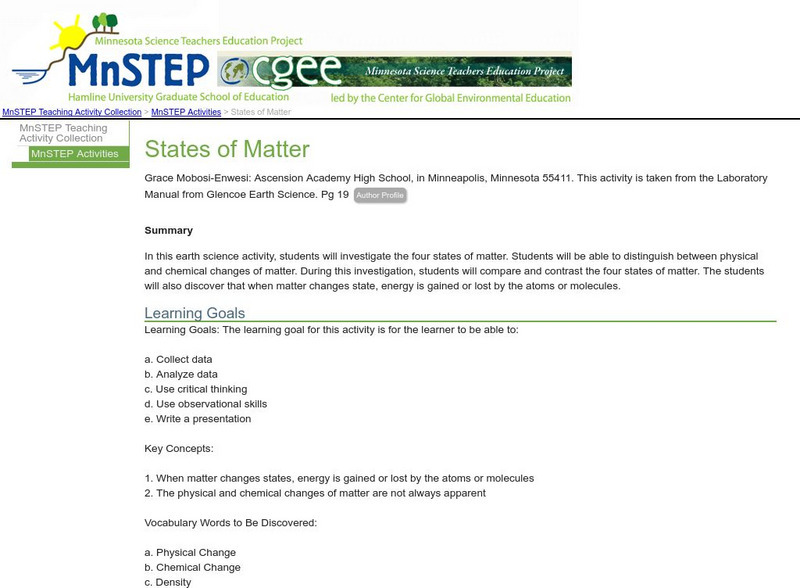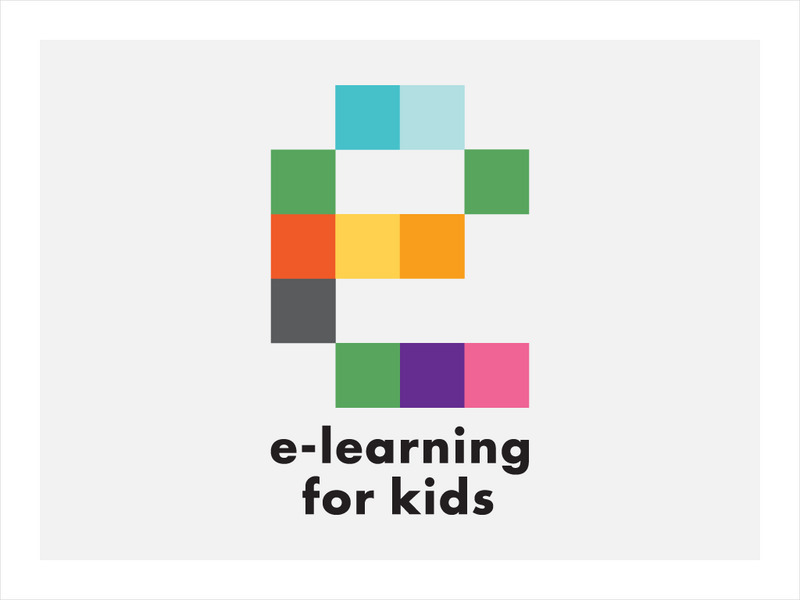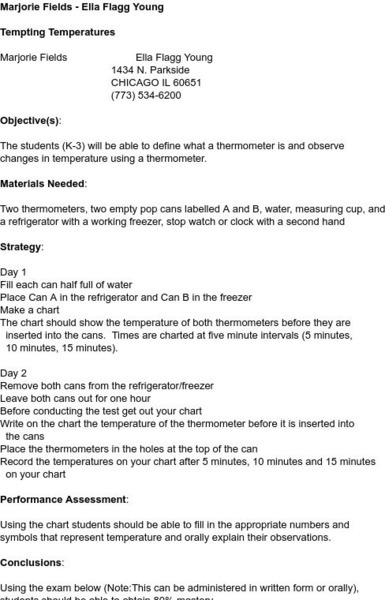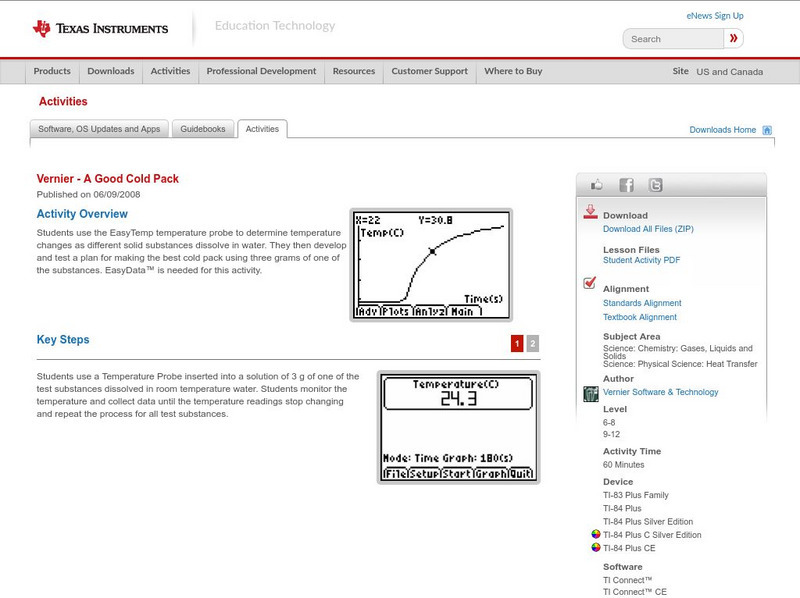New York University
New York University: States of Water
Use this resource to learn about the three different phases of water; solid, liquid, and gas. What happens to water as it changes into a solid or gas? Includes short and easy to do activity.
BBC
Bbc Schools: Ks2 Bitesize: Science: Materials: Changing States
Investigate the changing states of water as you help Steve stay alive while in the Arctic. Includes background information about changing states of matter and about the water cycle, as well as a quiz.
Science Education Resource Center at Carleton College
Serc: Observing the Effect of Temperature on Change of State and Gas Pressure
This lab serves as a short introduction to both changes in state and air pressure/the gas laws. The students will heat a small amount of water in an aluminum can. They will then invert it in a bucket of cold water and crush the can using...
American Chemical Society
Inquiry in Action: From Liquid to Gas to Solid
What causes frost to form on the outside of a cold container? In this activity, students will see that the liquid water can change state again and freeze to become ice.
Science Education Resource Center at Carleton College
Serc: Mn Step: States of Matter
In this activity, students investigate physical and chemical changes in the states of matter for water. They collect data and record their observations.
Chem Tutor
Chem Tutor: Chemistry: States of Matter
This lesson focuses on the states of matter: solids, liquids, and gases. It also discusses the Kinetic Theory of Matter, Thermodynamics, Triple point, Phase Change Graphs and the Heating Curve of Water. It provideds adrawing of a heating...
E-learning for Kids
E Learning for Kids: Science: Loch Ness: What Happens When Solids and Liquids Are Heated or Cooled?
Students will look at what happens to different types of matter when they have a change of state.
CK-12 Foundation
Ck 12: Fifth Grade Science
This customizable digital textbook covers topics related to fifth-grade science. It is Next Generation Science Standards (NGSS) aligned.
Museum of Science
The Atom's Family: Phases of Matter
Help the Phantom choose a material and observe the changes at different temperatures in the molecule chamber. What happens to the elements or molecules as the temperature changes?
Concord Consortium
Concord Consortium: How Can a Small Spark Start a Huge Explosion?
In this Activity 1 investigates What makes materials different from each other? Students will continue to learn about energy and to investigate how energy changes relate to changes in matter. Students will also explore what makes...
Science and Mathematics Initiative for Learning Enhancement (SMILE)
Smile: Tempting Temperatures
In this lesson plan students learn how to use a thermometer and compare changes in temperature using water in the fridge and water in the freezer. Helps students create charts to analyze data.
Utah Education Network
Uen: Adding Heat
Observe the changes in the states of matter and volume when a balloon-covered flask with water in it is heated.
Other
Howto smile.org: From Gas to Liquid to Solid
Allow your students to explore states of matter as they learn what causes frost to form on the outside of a cold container. Students will observe how liquid water can change to ice or water vapor in this lab. Lesson includes background...
Other
Science Alive: Melting Point Simulation
Percy Julian and Josef Pikl used the fact that melting point-the temperature at which a substance changes from a solid to a liquid-is a characteristic property of a substance to prove that the British chemist Robert Robinson could not...
Texas Instruments
Texas Instruments: A Good Cold Pack
Students use the EasyTemp temperature probe to determine temperature changes as different solid substances dissolve in water. They then develop and test a plan for making the best cold pack using three grams of one of the substances....











